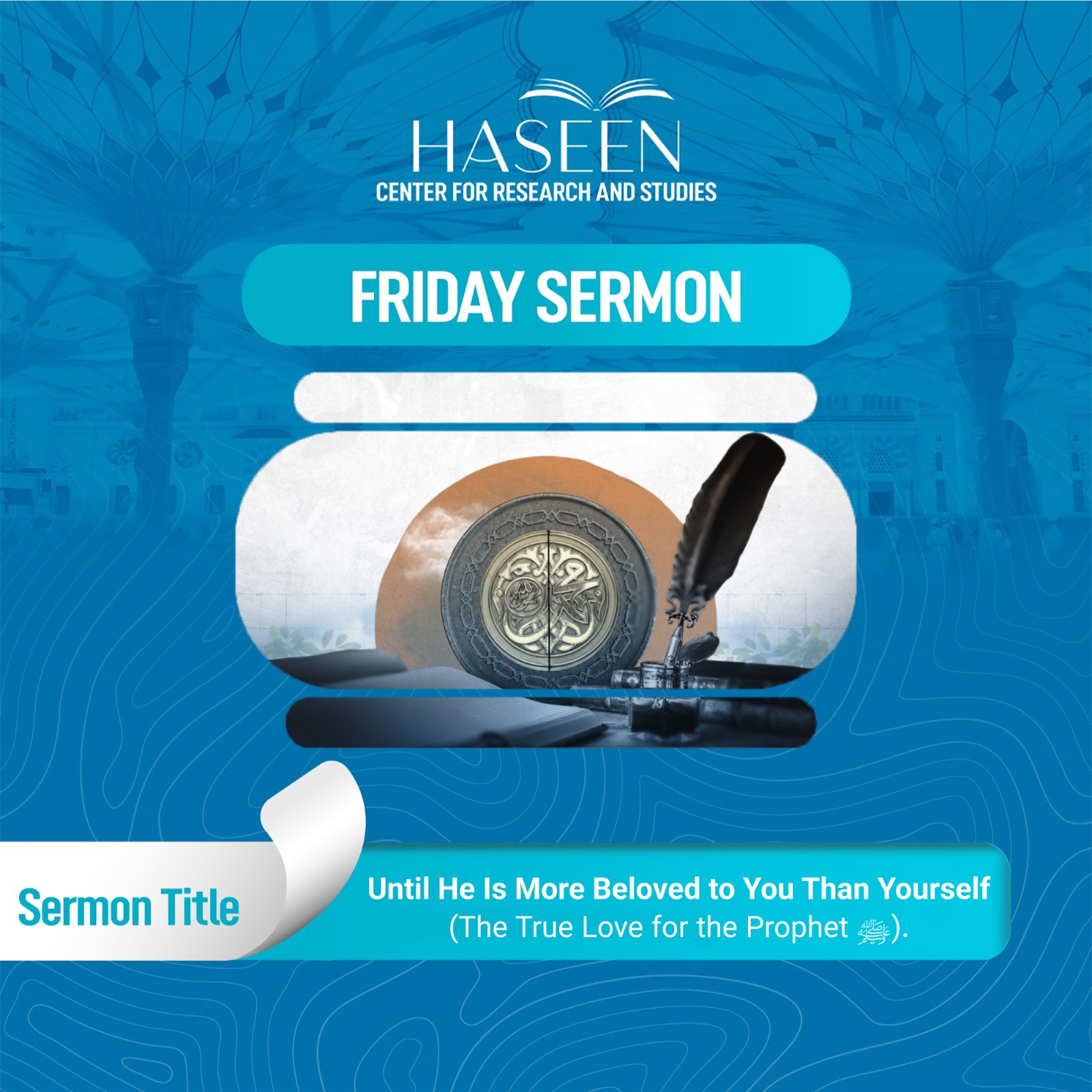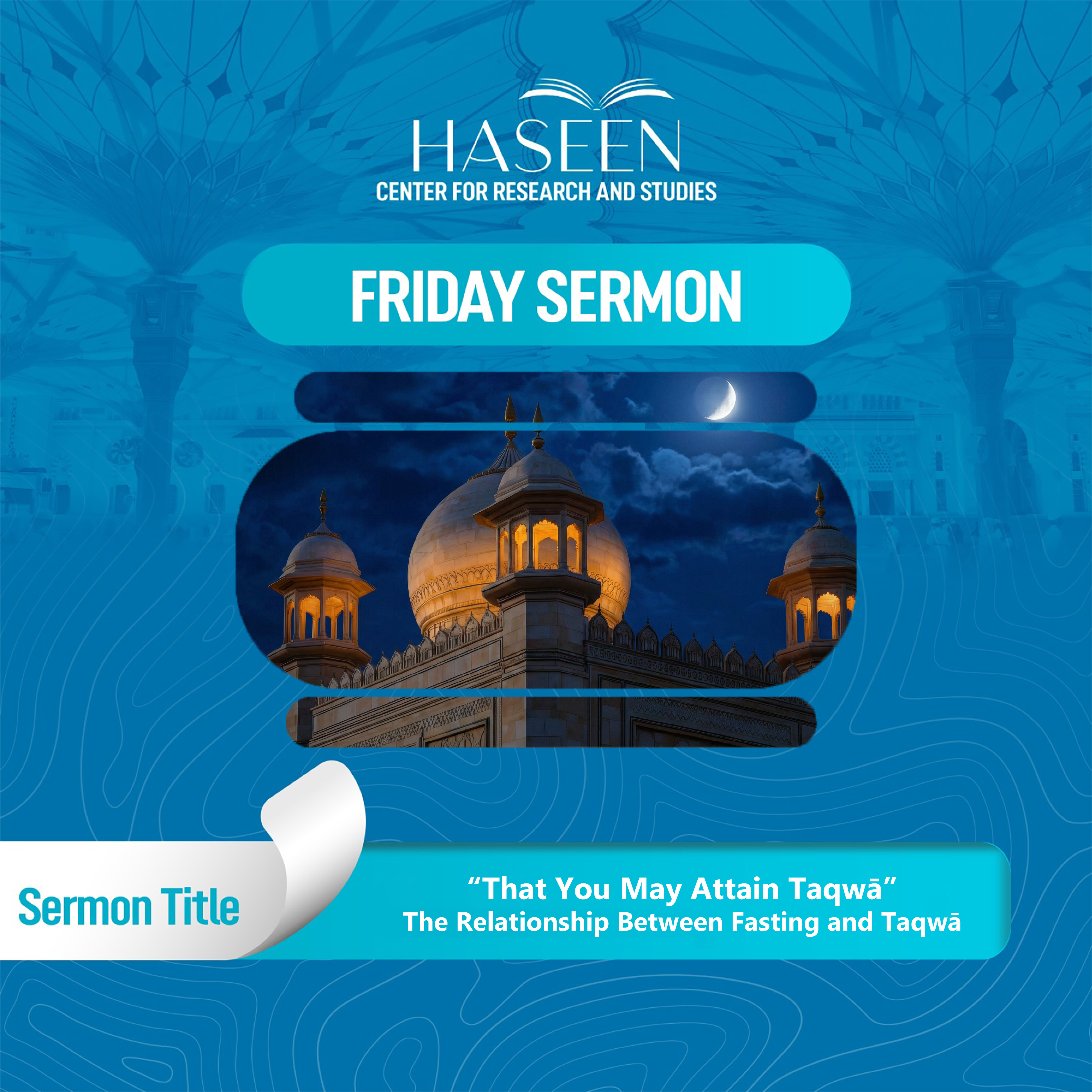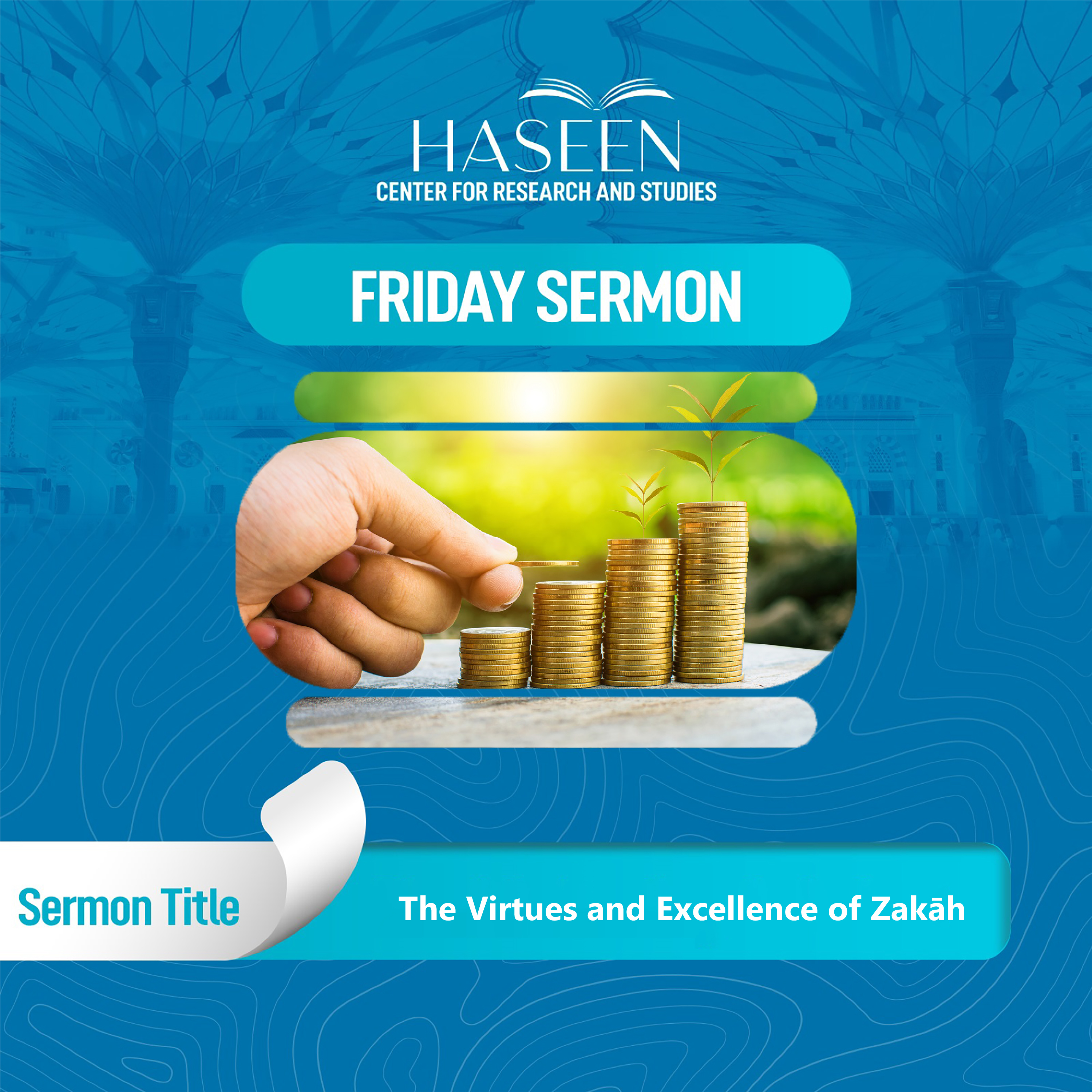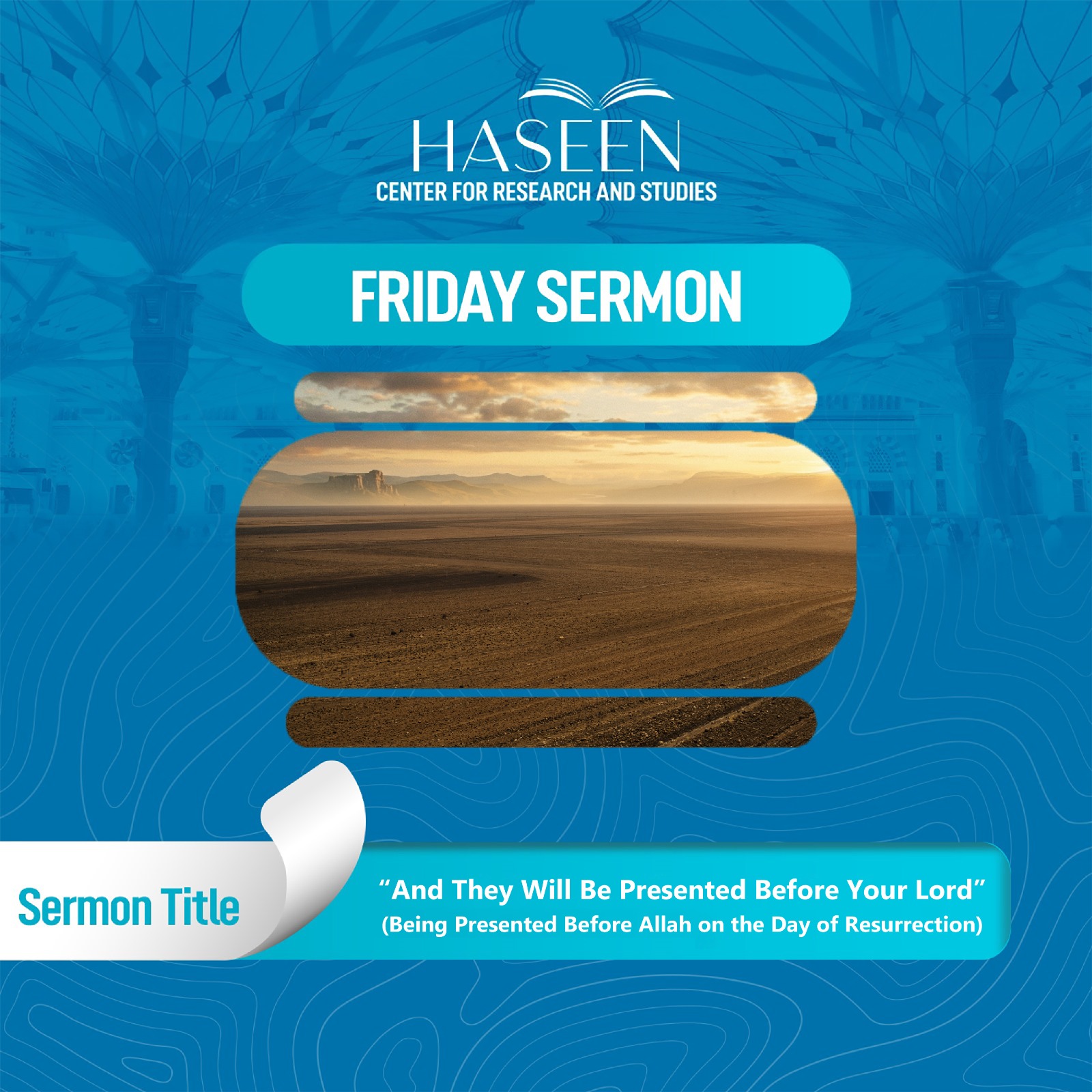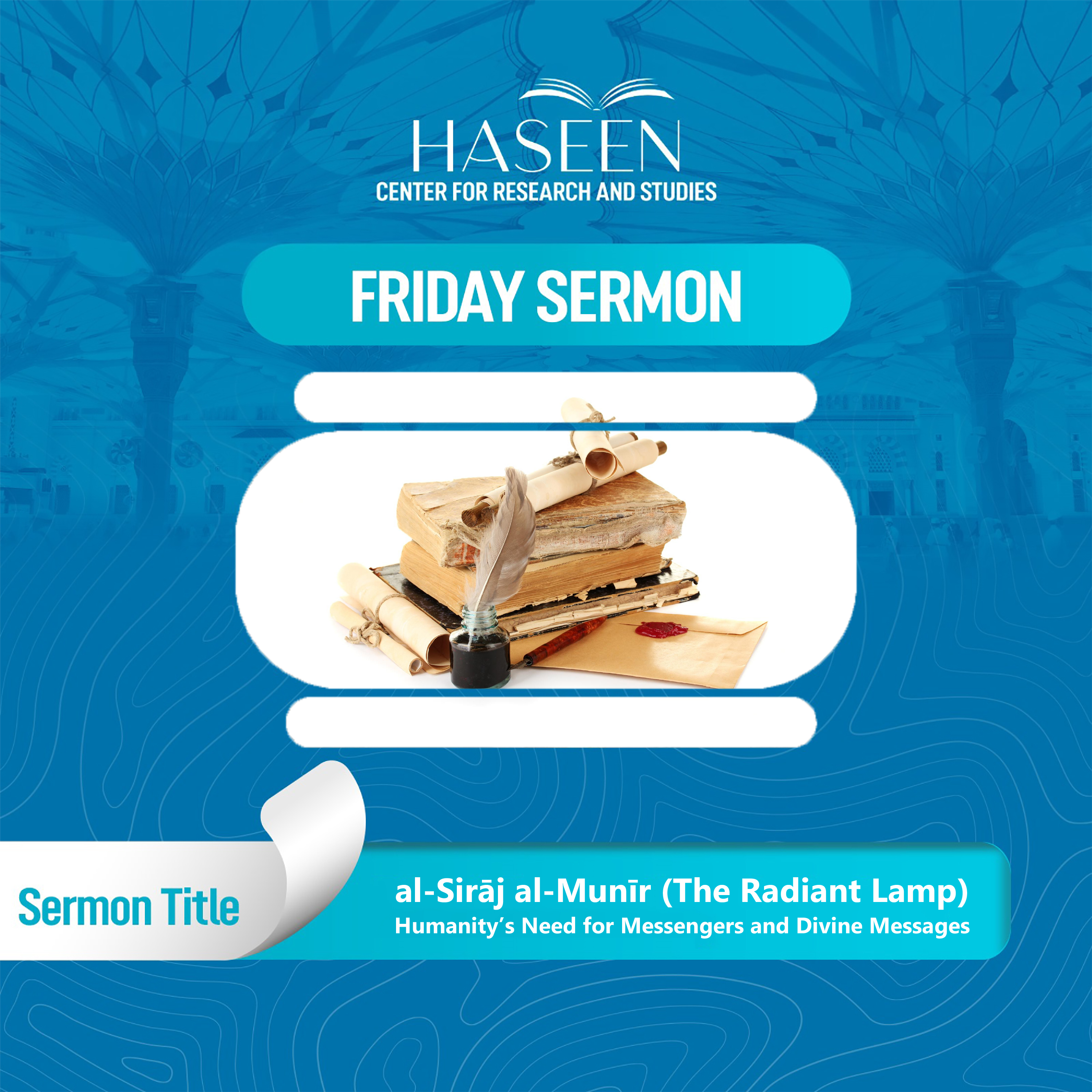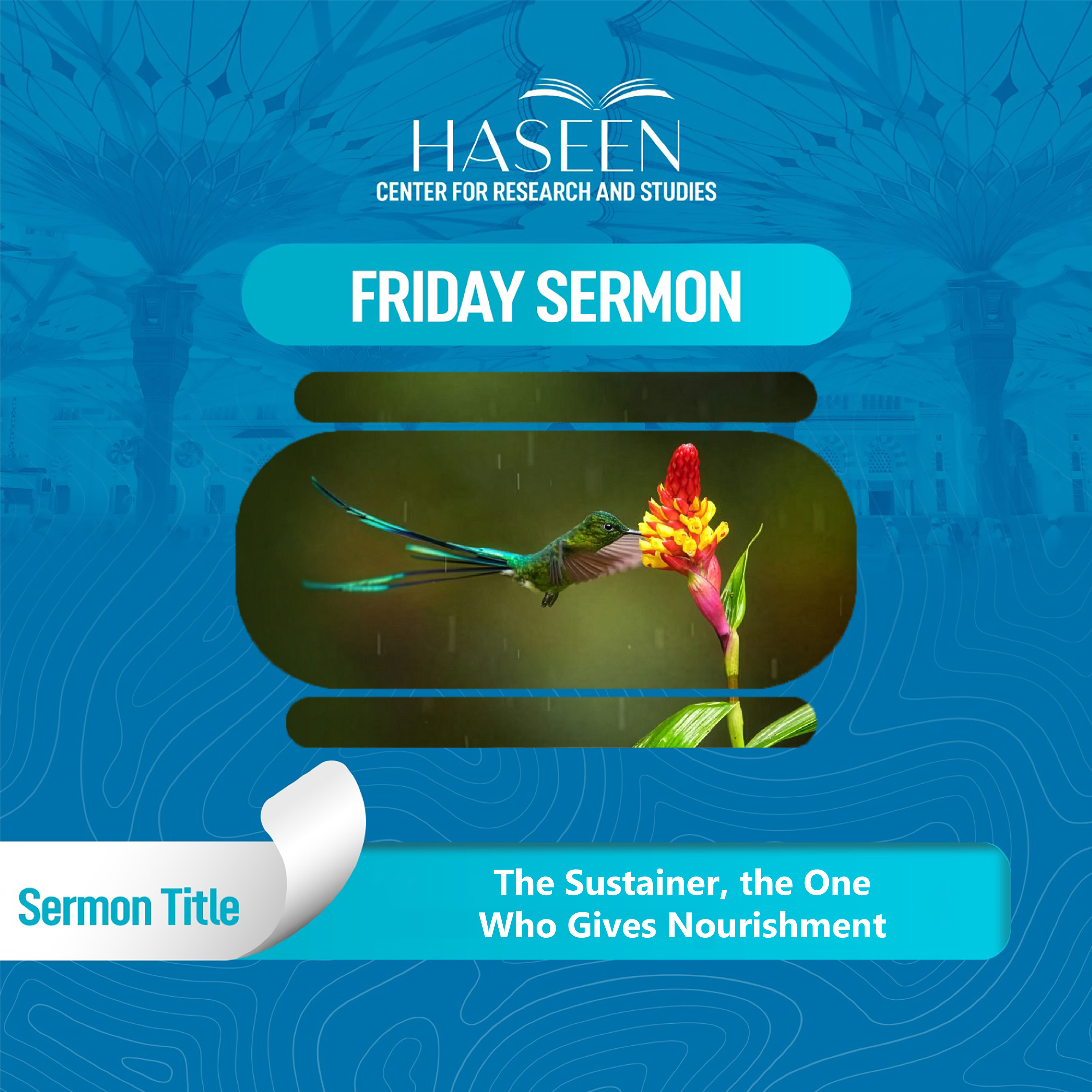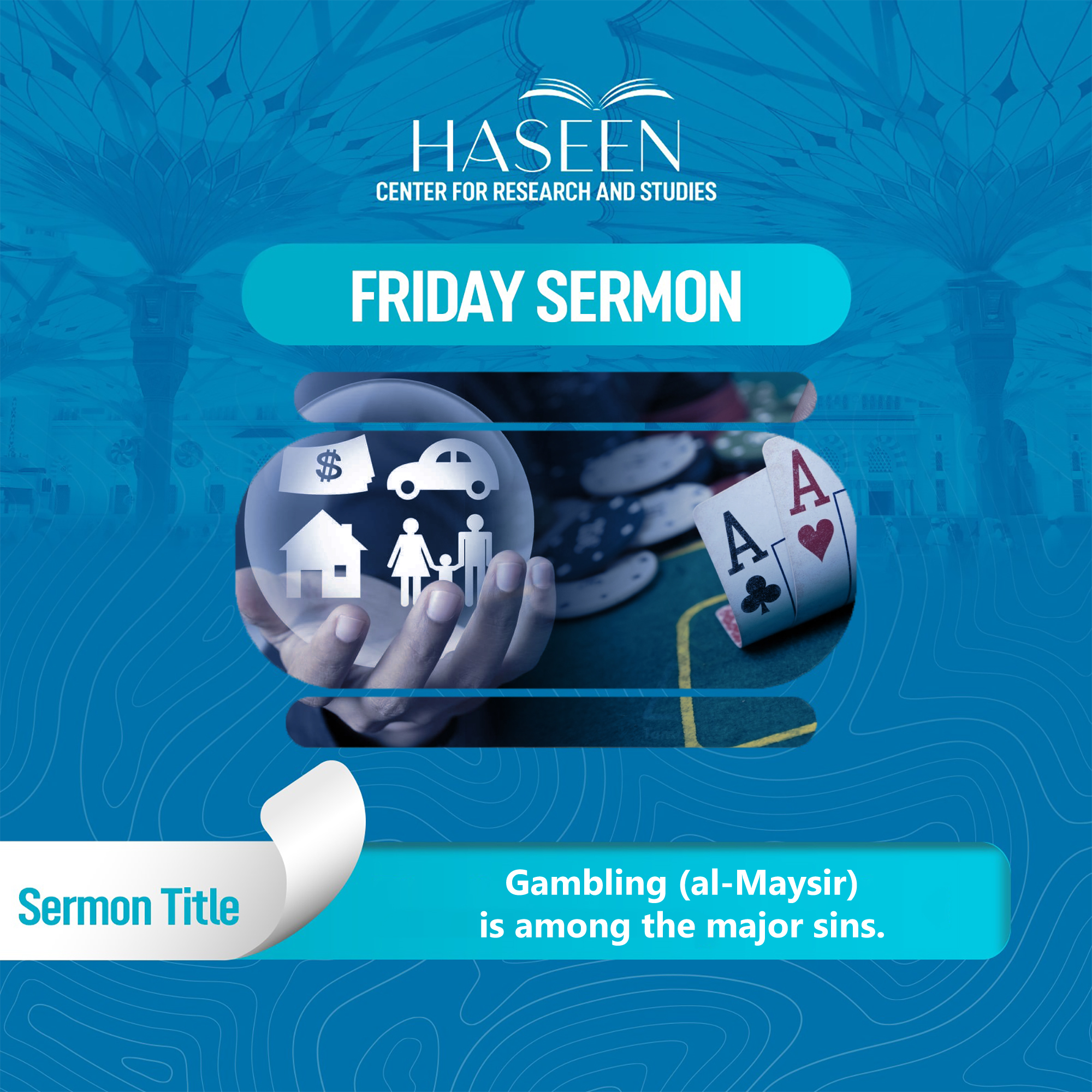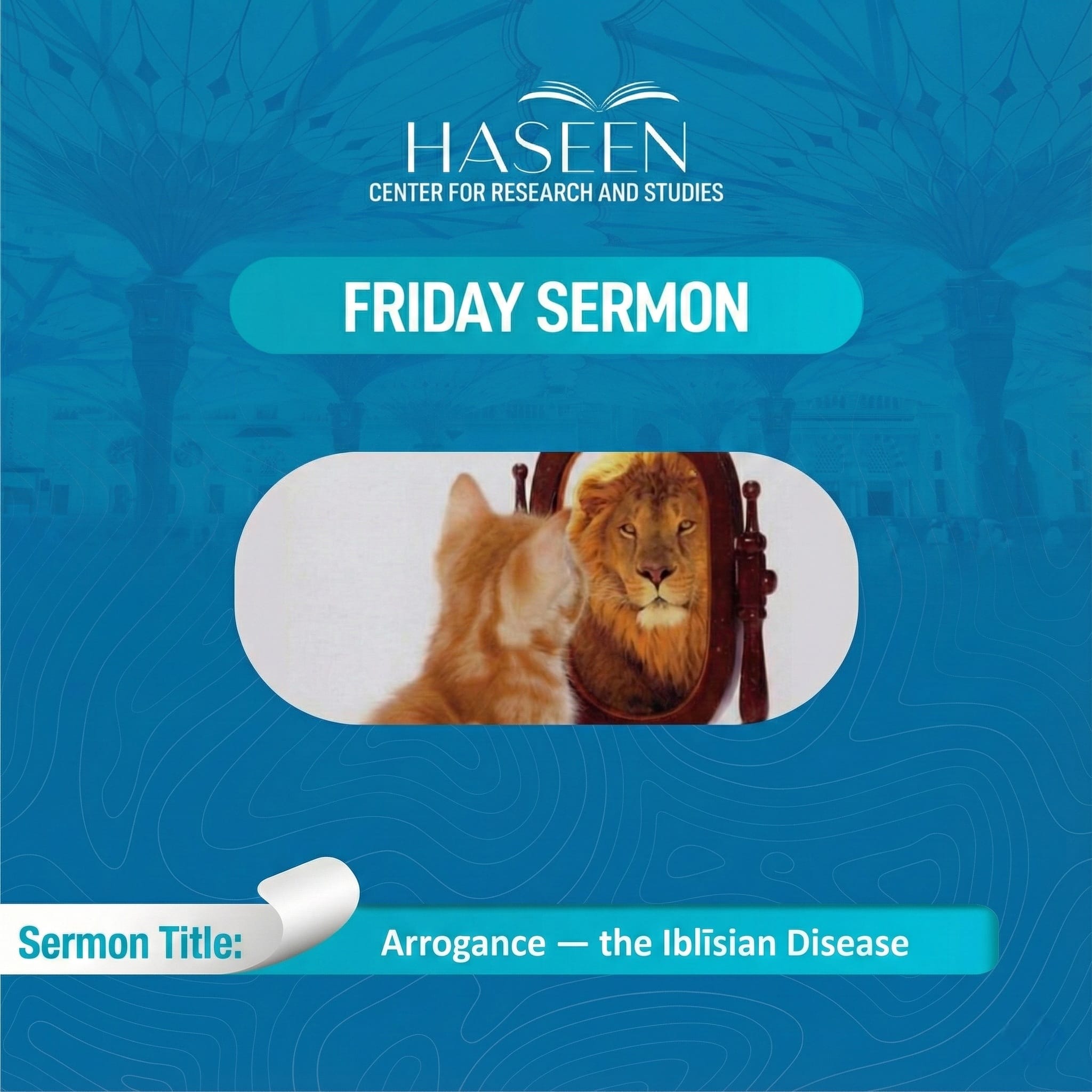Title of Sermon: Until He Is More Beloved to You Than Yourself (The True Love for the Prophet ﷺ).
Elements of Sermon:
1. The Companions' Manifestations of Love for the Messenger of Allah ﷺ.
2. The Obligation to Prioritize the Love of Allah and His Messenger ﷺ over Everything Else.
3. The Sign of True Love is Following Him and Abandoning Innovation.
All praise be to Allah, who sent His Prophet Muhammad as a radiant lamp, and made love for him and following him a straight path. I bear witness that there is no deity worthy of worship but Allah, who is without partner, and I bear witness that Muhammad is His servant and messenger. May Allah exalt and send peace to him, his family, and his companions in abundance.
To proceed:
Fear Allah, O servants of Allah, as He should be feared, and be mindful of Him in private and public, as He says:
يَا أَيُّهَا الَّذِينَ آمَنُوا اتَّقُوا اللَّهَ حَقَّ تُقَاتِهِ وَلَا تَمُوتُنَّ إِلَّا وَأَنْتُمْ مُسْلِمُونَ
﴾O you who have believed, fear Allah as He should be feared and do not die except as Muslims﴿ [Alu ‘Imran: 102].
Have you heard the story of the leader of Yamama, Thumama ibn Uthal? The Prophet ﷺ sent a military expedition, and Thumama was brought as a prisoner and tied to one of the pillars of the mosque. The Prophet ﷺ came to him and said, "What do you have to say, O Thumama?" Thumama replied, "Only good things, O Muhammad! If you kill me, you kill someone whose blood will be avenged. If you show favor, you show favor to one who is grateful, and if you seek wealth, ask for whatever you want."
For three days, the question and answer were repeated, and on the third day, the Prophet ﷺ said, "Release Thumama!" Thumama went, washed himself, then returned to the mosque and declared, "I bear witness that there is no deity worthy of worship but Allah, and I bear witness that Muhammad is the Messenger of Allah." He then said, "O Muhammad! By Allah, there was no face on earth more hated to me than your face, but now your face is the dearest of all faces to me. By Allah, there was no religion more hated to me than your religion, but now your religion is the most beloved to me. By Allah, there was no land more hated to me than your land, but now your land is the most beloved to me."
Thumama then traveled to Mecca for Umrah. Someone said to him, "Have you apostatized?" He replied, "No, but I have embraced Islam with Muhammad, the Messenger of Allah ﷺ, and by Allah, no grain of wheat will come to you from Yamama until the Prophet ﷺ permits it." (Narrated by Bukhari and Muslim).
Anyone with a pure heart who comes to know the Prophet ﷺ through his noble character and pure qualities cannot help but love him. In fact, they will be completely captivated by love for him.
For this reason, no one has ever loved another as the companions of the Prophet ﷺ loved him. It was true love, not empty claims.
Their love for him was so great that they sacrificed their lives for him, preferring him over their own parents and families.
When the Prophet ﷺ sat on the pulpit and said, "A servant has been given a choice between the adornments of this world and what is with Allah, and he has chosen what is with Allah," Abu Bakr, the truthful companion, understood that the one being given the choice was the Messenger of Allah ﷺ. Abu Bakr began to weep and said, "May our fathers and mothers be sacrificed for you, O Messenger of Allah!" (Narrated by Bukhari and Muslim).
When they were together during the Hijrah, Abu Bakr brought milk for the Prophet ﷺ from a sheep and cooled it for him, then said to him, "Drink, O Messenger of Allah!" Abu Bakr later said, "The Messenger of Allah ﷺ drank until I was satisfied." (Narrated by Bukhari and Muslim).
On the blessed day of migration, when the Quraysh had placed a great reward for whoever captured the Prophet ﷺ and Abu Bakr, mercenaries among the disbelievers set out to find them. One of them, Suraqah ibn Malik, nearly caught up with them. Abu Bakr wept when he saw him approaching, and the Prophet ﷺ said to him, "What makes you weep?" Abu Bakr replied, "By Allah, I do not weep for myself, but I weep for you." (Narrated by Ahmad).
At the Battle of Uhud, the Prophet ﷺ stood as a brave lion, advancing toward the enemies of Allah with courage. However, Abu Talhah surrounded the Prophet ﷺ and shielded him, saying, "O Prophet of Allah! May my father and mother be sacrificed for you! Do not expose yourself! Let no arrow strike you; my neck for your neck!" (Narrated by Bukhari and Muslim).
Abdullah ibn Abdullah ibn Ubayy ibn Salul, when he learned of his father’s harm toward the Prophet ﷺ, said, "By the One who has honored you and sent down the Book upon you, if you wish, I will bring you his head." But the Messenger of Allah ﷺ replied, "No, rather honor your father and treat him well." (Narrated by Ibn Hibban).
Their joy was tied to what made the Prophet ﷺ happy. Umar (may Allah be pleased with him) once said to the Prophet's uncle Abbas, "By Allah, your acceptance of Islam on the day you embraced it was dearer to me than the Islam of my own father, for I knew that your Islam was more beloved to the Messenger of Allah ﷺ than the Islam of my father." (Narrated by Al-Tabarani).
Their love for the Prophet ﷺ extended to everything he loved, simply because he loved it.
Here is Anas (may Allah be pleased with him) witnessing the Prophet ﷺ eating food containing pumpkin, and he saw him following the pieces of pumpkin around the dish. Anas said: "I have continued to love pumpkin ever since I saw the Messenger of Allah ﷺ doing what he did." (Narrated by Al-Bukhari and Muslim).
Servants of Allah:
The love for Allah and His Messenger ﷺ must be prioritized over any other love, so that Allah and His Messenger ﷺ become more beloved to you than your wealth, children, family, and all of humanity.
The Prophet ﷺ said: “There are three qualities, whoever possesses them will find the sweetness of faith,” the first being: “that Allah and His Messenger are more beloved to him than anything else...” (Narrated by Al-Bukhari and Muslim).
The Prophet ﷺ also said: “None of you will truly believe until I am more beloved to him than his father, his child, and all of mankind.” (Narrated by Al-Bukhari and Muslim).
The Prophet ﷺ has more right over you than even your own self. Therefore, his love takes precedence over your love for yourself.
One day, the Prophet ﷺ took the hand of Umar ibn Al-Khattab, who said to him: “O Messenger of Allah, you are more beloved to me than everything except my own self.” The Prophet ﷺ said: “No, by the One in Whose Hand is my soul, not until I am more beloved to you than your own self.” Umar then said: “Now, by Allah, you are more beloved to me than my own self.” The Prophet ﷺ said: “Now, O Umar!” (Narrated by Al-Bukhari).
May Allah bless me and you with the Great Qur'an and benefit us from its verses and wise reminders. I ask Allah for forgiveness for myself and for you, so seek His forgiveness, for He is the All-Forgiving, the Most Merciful.
The Second Sermon
All praise is due to Allah, and may Allah exalt and send peace to the Messenger of Allah, his family, his companions, and those who follow him. After this:
Indeed, the greatest sign of love is faith, obedience, and absolute following of the Prophet ﷺ. Allah says:
قُلْ إِنْ كُنْتُمْ تُحِبُّونَ اللَّهَ فَاتَّبِعُونِي يُحْبِبْكُمُ اللَّهُ وَيَغْفِرْ لَكُمْ ذُنُوبَكُمْ وَاللَّهُ غَفُورٌ رَحِيمٌ
"Say, 'If you love Allah, then follow me, and Allah will love you and forgive your sins. And Allah is Forgiving and Merciful.'" [Alu-'Imran: 31].
A true lover does not place anyone's words above the words of the Prophet ﷺ, nor anyone's judgment above his. This is what Imran ibn Husayn (may Allah be pleased with him) narrated about the Prophet ﷺ, that he said: “Modesty only brings good.” A man responded, “It is written in wisdom that modesty brings dignity, serenity, and sometimes weakness.” Imran became angry until his eyes turned red, and he said to him, “I narrate to you from the Messenger of Allah ﷺ, and you speak to me from your paper!” (Narrated by Al-Bukhari and Muslim).
And this is Abdullah ibn Umar (may Allah be pleased with him), who narrated that the Prophet ﷺ said: “Permit women to go out to the mosques at night.” His son, named Waqqid, said: “But they will use it as a means of corruption.” Ibn Umar struck his son in the chest and said: “I narrate to you from the Messenger of Allah ﷺ, and you say, 'No'?” (Narrated by Muslim).
The love for the Prophet ﷺ contradicts innovation in the religion of Allah. How can one claim to love him while opposing his Sunnah and guidance?
The love for the Prophet ﷺ is not expressed through extremism, seeking his help, or celebrating birthdays filled with evils, polytheism, dancing, and drumming.
True love for him is faith in him, following his Sunnah, and supporting his religion.
May Allah have mercy on Imam Malik when he said: "Whoever innovates in Islam something they see as good, has claimed that Muhammad ﷺ has betrayed the message, for Allah says: 'Today I have perfected your religion for you.' [Al-Ma'idah: 3]. So what was not part of the religion then, cannot be part of the religion today."
O Allah, grant victory to Islam and honor the Muslims, and destroy the Jewish criminals. O Allah, send tranquility into the hearts of the mujahideen in Your cause, save Your oppressed servants, and raise the banner of religion by Your strength, O Strong and Mighty One.
O Allah, guide our leader to what You love and are pleased with, and take his steps towards righteousness and piety.
Our Lord, give us goodness in this world and goodness in the Hereafter, and protect us from the punishment of the Fire.


